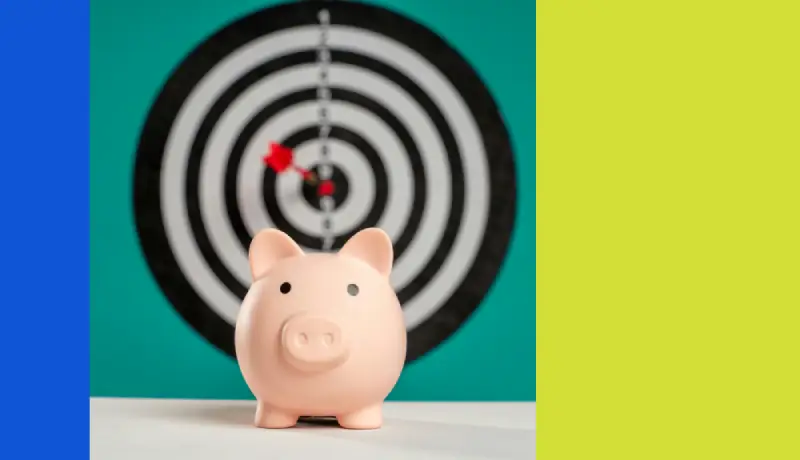Photo by Monstera
It was strange to hear the words ‘short selling’ in a conversation about sharing birthday chocolates that I was having with my 12-year-old son. After he admitted ignorance about the meaning of the term, we explained it in the simplest way possible and then could not resist, talking about its relevance in the world of stocks and funds.
Practically every parent is working hard to earn a living that provides well for their children, but are all parents also investing well to cover some part of their child’s financial future?
Buying a life insurance endowment policy at childbirth, which gives roughly 4%-5% annualised return at the end of 20-25 years, doesn’t qualify as an investment. To invest wisely for your child you must first understand the concept of inflation. Everything you can buy today will likely be more expensive 15 years later. The inflation rate over a 10-15 year period in India, is seen at roughly 6%-7% a year.
This means, your Rs 100 in 10 years, could be worth just Rs 55. To ensure that the real value of your money increases, you have to beat inflation. A high-cost insurance plan, low-yield bank fixed deposit or money left in a national savings certificate is simply not going to do this for you.
How to create wealth for your child?
If you are planning to invest in your child’s name or for your child’s financial future or education, the two most important aspects are to choose liquid growth assets and also start as early as possible to benefit from the impact of compounding returns.
Equity stocks, funds and real estate are the most popular growth assets that have been shown to create wealth over long periods like 10-20 years. While real estate can work, the risk is high given that a lot depends on the location of the property and the ability to sell at your asking price when you need to. Historically, even with the boom periods in real estate like from 2003-2008, the long-term return you can make in a decade or two hasn’t been more than 7.5%-8% annualised. Plus, there is no organised market, hence, the risk is high. It’s also a chunky investment, which you can’t make with small, regular payments. You may be thinking that you can take a loan and have regular payments in the form of broken-up monthly repayment. However, a loan to buy an asset is not an investment till you pay off the loan.
There are many who also indulge in regular buying of small-value gold coins as an asset accumulation strategy for their child’s future. However, here as well, long-term returns fall short as gold price gains over time don’t beat inflation. Plus, buying small-value gold coins of less than 10gm, involves a higher buy price per unit (compared to the standard market price of 10gm) and you may face difficulty selling it as it is as banks and jewellery shops are reluctant buyers for those.
Equity stocks or funds, on the other hand, provide a liquid, flexible, inflation-beating and tax-efficient way to invest for your child’s financial future. It is liquid because you can withdraw any day and get your funds in your bank account within the next two days. Flexible because, you can invest in small amounts through systematic investment options in both stocks and funds, plus you can choose where to invest and change that choice if you wish to. As opposed to this in real estate, flipping houses is not a very flexible option. Lastly, long-term equity taxation at 10% is reasonably efficient.
You can invest for your minor child directly in their name with you as a guardian. This can be done for mutual funds and for the opening of a Demat account as well.
What about the risks?
You might be thinking that equity returns are risky and volatile, which means you can lose capital too. While this holds true for near months and investments made for a year or two, the longer you remain invested, the smoother it gets. Historically, in a 10-year period, there is less than a 1% probability of making a negative return and a 25% probability of earning less than an 8% annualised return, if you invest in a broad market index like the Nifty 50.
What you need to be careful about and cannot compromise on is quality. A breach in return expectation due to the time period can be rectified by remaining invested for longer, but a breach in returns due to poor quality investment choices and result in a permanent loss of capital.
The simplest option is to go with passive funds like index funds or exchange-traded funds (ETF). Suppose you pick one that mirrors a diversified, blue chip stock index like Nifty 50 or S&P BSE Sensex 30. In that case, you neither need to worry about the quality of the individual stocks nor about the quality of the fund manager. A large-cap ETF is possibly the lowest-cost choice for investing in a long-term wealth-creating asset. Creating long-term wealth for your children is about starting early rather than waiting till they are older, focusing on growing wealth rather than looking for low-yield guaranteed returns and taking the calculated risks which help you earn through capital gain rather than relying solely on interest income.
Also read:
Not equity returns, it’s asset allocation that matters most

The markets are correcting and that’s no news, but yes, we haven’t seen this sharp a downtrend is a while now.
The pointlessness behind reckless trading risks

Retail traders are rarely able to beat the market. This is what market regulator, SEBI’s study released in July 2024 showed; 7 out of 10 individual intraday traders in the equity have incurred losses in FY2022-23 as per the study.
Equity investing is more reliable than investing in real estate

In a growing economy like India, there are bound to be innumerable stories about how individuals have gained multiple times the value of their investment in real estate.

